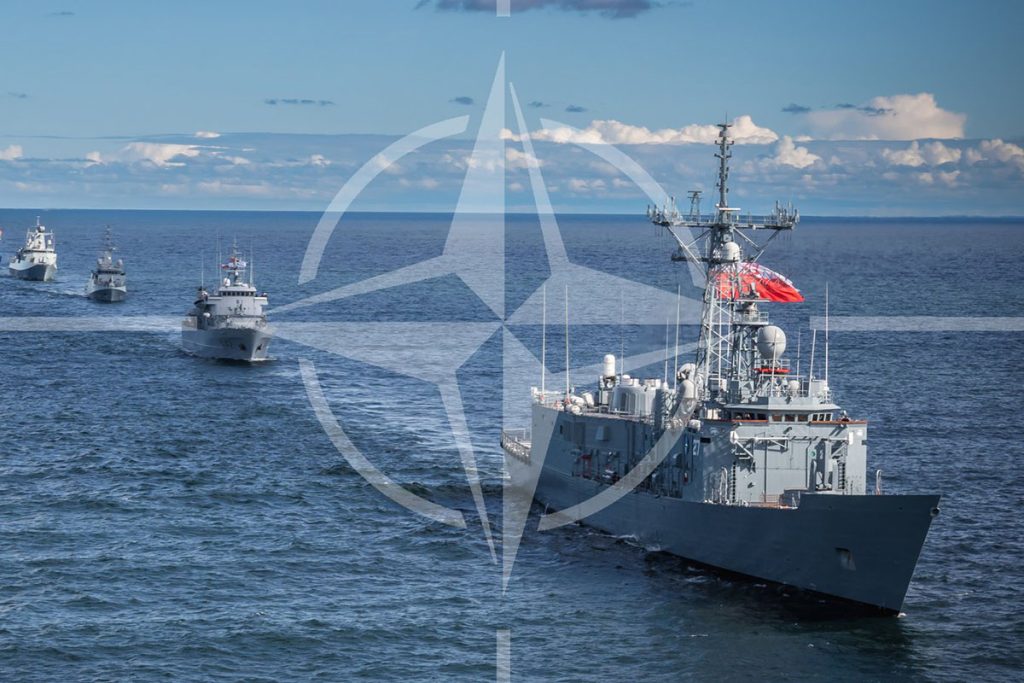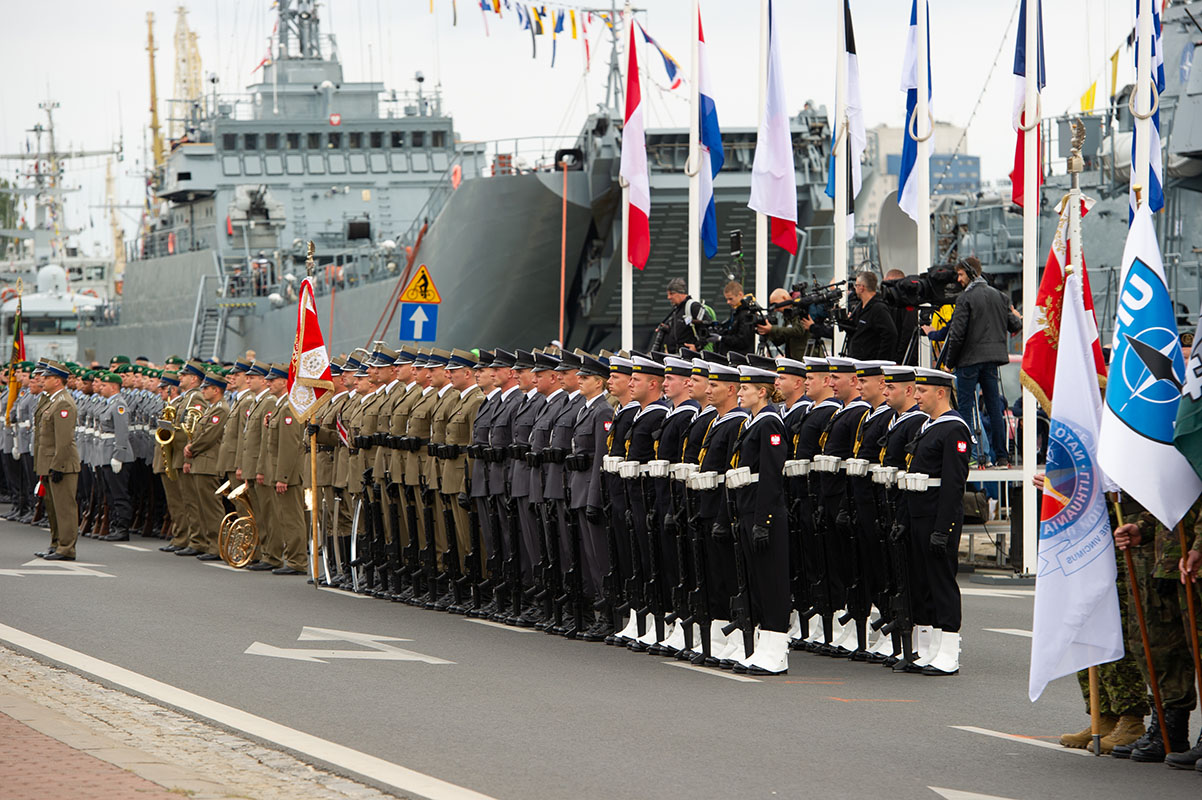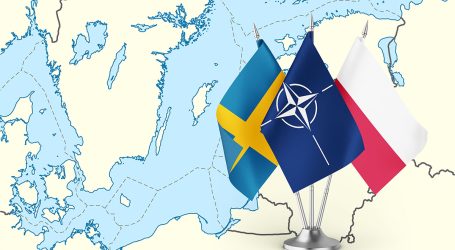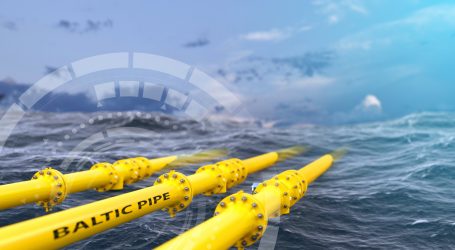25th anniversary of Poland’s admission to the North Atlantic Alliance

“On 12 March 1999, in the city of Independence in the United States, the instrument of ratification of the North Atlantic Treaty adopted by Poland was formally handed over to the US Secretary of State Madeleine Albright. The time and place of this act has a symbolic meaning today, but at that time it was an unambiguous and clear declaration, in which a free and democratic Poland defined the vision of its security and indicated the direction in which it wanted to develop it further,” says the Deputy Prime Minister, head of the Ministry of Defence. – says Deputy Prime Minister, head of the Ministry of Defence, Władysław Kosiniak-Kamysz.
“The decision to join NATO was one of the most important moments in Poland’s recent history – we joined the largest and strongest defence alliance in the history of the modern world – let me remind you that this year we are celebrating the 75th anniversary of its establishment.” – doał Kosiniak-Kamysz.
Poland in NATO
25 years ago, on 12 March 1999, we opened a new chapter in the history of Polish security. The status of a member in the North Atlantic Alliance remains one of the main pillars of Polish security policy as well as that of Europe. Article 5 of the Washington Treaty is the guarantor of our security, as well as the foundation of the Alliance’s deterrent power. Poland not only benefits from common security, but also makes an important contribution to strengthening it. Confirmation of our country’s position in the North Atlantic Alliance came when Poland was awarded the organisation of the 2016 meeting of NATO heads of state and government. The summit, which took place in Warsaw, was an important event in the history of the Alliance, starting a new chapter of NATO’s military adaptation to the changing security environment. For the soldiers of the Polish Armed Forces, the 25 years of Poland’s presence in NATO have been a time of hard service, dynamic development and building a strong position in NATO. Since joining NATO, Poland has conscientiously fulfilled all the obligations that membership of the Alliance imposes on its constituent states. Polish soldiers have taken and continue to take part in missions and operations conducted under the auspices of the Alliance. Over the 25 years of our membership, nearly 75,000 soldiers and military personnel have served in them. Poland is an important member of the Alliance not only because of its geopolitical location, but above all because of its experience and potential. We are at the forefront of the North Atlantic Alliance countries in terms of our country’s high defence spending. This is evidenced by the high percentage of the national budget that our country allocates to defence – twice as much as the 2% of GDP required by NATO, or up to 4.2% of GDP in 2024, planned at around PLN 158 billion, of which more than 50% is spent on the modernisation of the Armed Forces, which also puts us at the forefront of the Alliance.
Since Poland joined NATO, numerous Allied or Alliance-related military structures have been located on our territory; numerous investments have been made under the NATO Security Investment Programme (NSIP), with a total value of PLN 7.8 billion.
The Polish Navy in NATO
The Polish Navy’s path to the Alliance began as early as the early 1990s. It was then that the Polish vessels ORP Wodnik and ORP Piast participated in the combat operation Desert Storm. Participation in this operation was the first example in post-war Poland of such close cooperation between Polish units and forces of Western fleets and the first test for our sailors in the new reality.
In 1993, the Polish Navy participated for the first time in the US Baltops manoeuvres, in which we have been present almost continuously to date. In turn, in 1995, the 13th minesweeper Squadron began permanent cooperation with the NATO Standing Mine Defence Ship Team.
From the very beginning, the process of integration with the Alliance’s naval forces has been geared towards gaining the capacity for joint training, exercises and the effective execution of tasks. Even before joining the Alliance, in 1998, Navy officers began serving at NATO commands in Brussels, Northwood and Brunsum, among others. From our first participation in the US Baltops 93 exercise until 1999, the Navy was present in all international exercises in the Baltic Sea organised under the auspices of the Partnership for Peace.
Polish ships also took part in combat operations. Among them, among others, three times in the anti-terrorist operation “Active Endeavour” in the Mediterranean Sea, in the operations “Enduring Freedom” and “Iraqi Freedom” in the Persian Gulf and several times in the anti-mine operation “Open Spirit” in the Baltic Sea.
In total, since 2002, 10 Polish ships have operated under the NATO flag in 26 missions for over seven years. In fulfilment of their Allied commitments, Polish ships participated, among others, in the activities of NATO Standing Response Force Teams (SNMG1 and SNMCMG1).
In many exercises, the Navy not only participated, but also organised them. The naval bases in Gdynia and Świnoujście became ports from which vessels of dozens of flags of Alliance and Partnership for Peace countries operated.
From the beginning of cooperation with NATO fleets until today, the Navy forces have been constantly present in international exercises at sea, in the air and on land, as well as in staff exercises. Polish sailors participate in NATO staff exercises and working groups and serve in North Atlantic Alliance commands in Belgium, Denmark, the Netherlands, Germany, the UK, Spain and Italy, among others.
During the 25 years of our presence in NATO, the Navy has participated in more than 250 international exercises in the Baltic Sea, the Baltic Straits, the North Sea, the Norwegian Sea, the Atlantic, the Mediterranean and the Black Sea. In all exercises and naval operations, they covered a total of 517,412 nautical miles, including 13,535 underwater.
In this way, together with the ships of other Alliance countries, we are creating an atmosphere of safety along the sea lanes and in key bodies of water that benefit the maritime economies of many countries, including Poland. This is a great achievement of which we can all be proud.
Source: PortalMorski.pl



